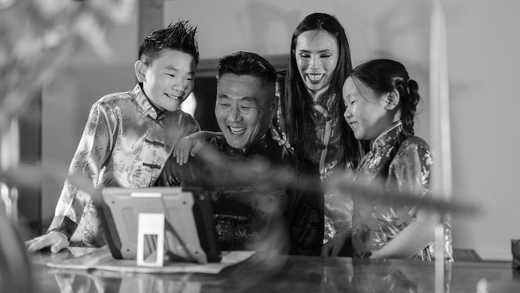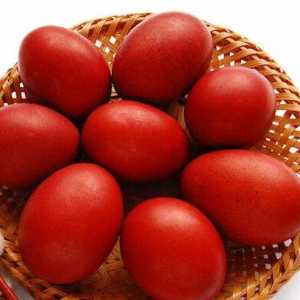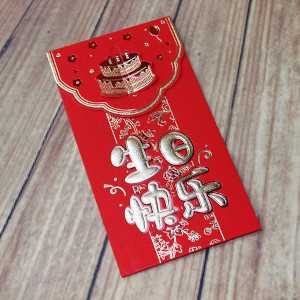A Guide To Mandarin Chinese Birthday Wishes And Traditions
 Written byJasmine Chiam
Written byJasmine Chiam- Read time11 mins
- Comments0

Learning how to say “happy birthday” in Mandarin Chinese is a handy skill.
Birthdays are one of the most popular and well-known celebrations, and this is no different in Chinese culture.
If your friend, family member, or someone special has just invited you to their birthday celebration, I’ve got you covered.
In this guide, I’ll teach you how to say “happy birthday” (and sing the birthday song) in Mandarin Chinese.
We’ll also take a look at some common Chinese birthday traditions and beliefs.
Let’s jump right in!
How to say “happy birthday” in Chinese
The most popular way to say “happy birthday” in Mandarin is 生日快乐 (shēngrì kuàilè).
生日 (shēngrì) translates to “birthday,” while 快乐 (kuàilè) means “happy”. Take note that the order is swapped in Mandarin, where the literal translation of the phrase 生日快乐 is “birthday happy.”
This is the standard way of wishing someone a happy birthday, and you will never go wrong with this phrase.
If you’d like to be a little more formal and proper, you can say 祝你生日快乐 (zhù nǐ shēngrì kuàilè).
The most part of this sentence should look familiar.
We’ve just covered part of it above.
The two new words introduced are 祝你 (zhù nǐ), which directly translates to “wish you.” So 祝你生日快乐 means “Wishing you a happy birthday.”
Take note that you can replace 你 (nǐ) with 您 (nín).
您 (nín) is used when you want to show respect and honor to an elder, senior, or highly-respected person.
If you’re the person on the receiving end, you can simply reply to a birthday wish by saying 谢谢 (xièxiè), which translates to “thank you”.
There are many other ways to thank someone in Mandarin Chinese, but this will be the simplest and most commonly used.
Other Chinese birthday wishes
If you’re up for a challenge or wish to get a little more creative with your wishes, here are some phrases that may come in handy.
They’re a variation or combination of the basic terms you’ve learned above.

祝你生日快乐,终身幸福。

祝你欢庆这一天,愿你生日的快乐与分俱增!

祝生日快乐,新的一年中好运、健康、快乐!

祝你生日快乐 ,天天快乐,心想事成。

祝你生日快乐,天天开心,幸福美满!
Again, you can use 您 (nín) instead of 你 (nǐ) when talking to someone you highly respect or an elder.
These wishes above are much harder to learn, but they’re extremely heartfelt and will impress the other party!
Let’s take a look at a few more phrases that are meant for more specific groups of people.
Here are two reserved for young or middle-aged women.

祝你生日快乐,青春永驻。

祝你生日快乐,年年十八。

祝你生日快乐,越来越漂亮。
Here are some phrases you can use for elders or seniors.

祝您福如东海,寿比南山。

祝您年年有今日,岁岁有今朝。

祝您生日快乐,长命百岁!

祝您生日快乐,身体健康,越活越年轻。
You may have noticed that each of the four phrases above uses 您 (nǐn) instead of 你 (nǐ).
While they both translate to “you,” 您 (nǐn) is specifically used to show respect when talking to an elder.
And that’s all the various ways you can say “happy birthday”—and wish someone well while you’re at it!
Chinese happy birthday song
Here’s another important thing we’ve going to cover: How to sing the birthday song in Mandarin Chinese.
It’s really simple and easy to pick up.
We’ve included the shorter version because this is the one most people (if not all) are familiar with, and you’ll likely be singing this version during parties and celebrations.

祝你生日快乐

祝你生日快乐

祝你生日快乐

祝你永远快乐
The first three lines are just repetitions of one of the earliest phrases we learned in this guide.
Some people may repeat this for the final line as well.
Alternatively, the last line could be as seen above.
Congratulations! You now know how to sing the birthday song in Mandarin Chinese.
Questions and phrases to say to the birthday celebrant
If you were to stop at just “happy birthday,” things may get a little awkward.
Here are a few simple phrases or questions you can use while speaking to the birthday celebrant to get a little bit of the conversation rolling.

你平时怎么过生日?

你打算怎么过你的生日?

你会办生日派对吗?

你的生日愿望是什么?

你几岁了?
The final question on age is typically reserved for younger kids or teenagers.
Asking an adult about their age could be a little sensitive and may make things awkward if they aren’t comfortable disclosing their age.
A more polite way to ask for a person’s age is to ask for their zodiac sign.
You can say 你属什么的? (nǐ shǔ shén me de?), which means “What is your zodiac sign?” The Chinese zodiac system consists of a twelve-year cycle of different animals, and each zodiac sign is named after a certain animal.
Chinese birthday traditions
Understanding the usual traditions and practices will come in handy if you’re celebrating or preparing for someone’s Chinese birthday.
Chinese birthday food
Birthday cakes are becoming increasingly popular in Chinese culture.
Hence, it isn’t unusual to have a birthday cake, blow out candles, and cut the birthday cake as you would in Western cultures.
On that note, here’s how to say “birthday cake” in Chinese: 生日蛋糕 (shēngrì dàngāo).
However, some Chinese birthdays will also incorporate traditional birthday foods based on Chinese culture and beliefs.
For instance, one popular Chinese birthday dish is called long-life noodles, or long noodles.
These noodles come in a single, long strand and are slurped up in one continuous strand without biting, chewing, or breaking it.
It is believed that they symbolize long life, and biting the noodle will put you at risk of cutting your life short.
In Mandarin, these long-life noodles are called 寿面 (shòumiàn) or 长寿面 (chángshòumiàn).

Some other popular Chinese birthday foods include the following:-
- 红鸡蛋 (hóng jīdàn): Red-dyed eggs
- 寿桃包 (shòu táo bāo): Peach-like steamed buns
The red-dyed eggs symbolize joy and a new or fresh start to life, while the peached-shaped buns represent immortality or long life.
These buns are typically served to elders celebrating their birthdays.
Chinese birthday gift etiquette
A birthday gift is called 生日礼物 (shēngrì lǐwù) or just 礼物 (lǐwù) in Chinese.
It’s wise to take a little more caution and care when preparing gifts for the birthday celebrant.
The usual gifts you would get someone would work perfectly, such as chocolates, shirts, makeup, and so on.
Another popular gift would be red packets or red envelopes containing money.

These are called 红包 (hóng bāo), which are usually given to infants, kids, or elders.
If you’ve brought your friend or family a gift, hand it to the recipient with both hands as a show of respect.
When they thank you for the gift, you can say 不客气 (bù kèqì), meaning “You’re welcome.” That’s the most common and well-known way to say “you’re welcome” in Mandarin Chinese.
But that’s not your only choice.
In this case, another term you can use include 不用谢 (bùyòng xiè), meaning “No need to thank me.” Alternatively, you can also say 小意思 (xiǎoyìsi), meaning “It’s no biggie,” or “It’s no big deal.”
There are some birthday gifts you should avoid.
Some bad gifts in Chinese tradition include the following:-
- A clock or watch: The phrase “give a clock” is 送钟 (sòng zhōng). This sounds exactly the same as the Chinese term 送終 (sòng zhōng), which refers to paying your last respects to someone who has passed on or is about to pass on.
- Towels: Towels are commonly handed out during Chinese funerals to symbolize the departure of a loved one. Hence, it’s best to avoid gifting these to steer clear of this association.
- Scented candles: Candles are usually linked to rituals for the dead, so they shouldn’t be gifted. These include regular candles, scented candles, or flameless candles.
- Shoes: 鞋 (xié), which is “shoes” in Chinese, sounds like 邪 (xié), which means “evil.” Hence, giving shoes is thought to symbolize bad luck in Chinese tradition.
- Mirror: Mirrors are believed to attract evil ghosts and spirits. Thus, they’re not the most attractive idea for a gift.
Other Chinese birthday taboos
Other than the above taboo gifts, here is a list of birthday taboos you may wish to know:-
Belated birthday celebrations are a big no-no
If you’re planning a party for a Chinese friend or family, you may wish to keep this in mind.
It’s best to have the celebration on or before the actual date.
Some people don’t celebrate certain birthdays
For instance, some women may not celebrate their 30th birthday as it is thought to be a year of uncertainty, damage, and danger.
This is another thing to note if you want to plan a birthday surprise for someone else.
Now you’re well-versed with Chinese birthday wishes and traditions
From standard birthday wishes to more sophisticated well-wishing, you’re well-prepared for the next celebration.
One essential takeaway from this guide is the phrase 生日快乐 (shēngrì kuàilè).
This is all you’ll need to know to wish someone a happy birthday and sing (most of) the birthday song.
Know of any other unique birthday wishes in Mandarin Chinese?
I’d love to hear them in the comments below.
 Grab the link to this article
Grab the link to this article